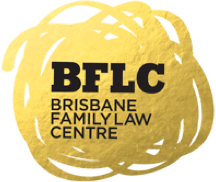When a couple who have kids are going through a divorce, this question will often come up: “How does child support work?”. The topic of child suport is an incredibly emotive one, we do recommend separating couples engage the help of a lawyer to help them navigate the child support process.
In this post, we will look at:
- How child support works
- The difference between child support and child maintenance
- The age when child support stops
- How to calculate child support payments
- How to claim child support.
What is Child Support and How does it Work?
Discussions as to how you and your ex are going to manage the ongoing costs for your children after your separation are often grouped into the matter of Child Support. Child Support matters are separate from your parenting and property settlement matters and aren’t dealt with by the Family Law Courts.
Child support is a payment that a parent makes to the other to help with the cost of looking after the child or children. It is a regular payment that a parent makes specifically for the financial benefit of a child. The purpose of child support is to provide financially for the cost of raising and caring for the child.
Under child support, there is the payer parent and the payee parent. The payer parent is the parent who pays the child support. The payee parent is the one who receives child support and most commonly is the parent meeting the majority of the caring es responsibility for the child, but this isn’t always the case..
The complex topic of child support can be broken up into two key parts- calculating child support and collecting child support.
Separating parents can either privately agree about child support payments or can apply to the Department of Human Services (Child Support) for an assessment if they cannot agree about the exact amount.
The amount of child support a parent pays depends on how much time the child spends with each parent. But even parents who spend no time with their child must make child support payments. Child support payments may be weekly, fortnightly, monthly or yearly. It depends on the payer to decide how they pay as well as the payment method.
At What Age does Child Support Stop?
Child support payments usually stop once the child becomes 18 years old. However, there are instances where child support payments stop before the child turns 18.
Such instances include:
- Where the child becomes self-sufficient
- if the child marries or enters into a de facto or marriage-like relationship
- if the child is adopted
- if the child dies.
There are also instances where child support payments for a child gets extended. For example, if by the age of 18, the child is still in high school, an application can be made to the court to extend the child support payments till the end of the school year.
Similarly, there are exceptional circumstances where the payer parent has to keep making payments for the care of the child over 18. Under such circumstances, child support can end, and child maintenance will begin. Both terms are often used interchangeably, but they are not the same.
What is the Difference Between Child Support and Child Maintenance?
Child support is not the same as child maintenance. Many people use both concepts interchangeably but they are different.
Child support is the financial support for a child that is under 18 years of age. Child maintenance, on the other hand, is the continuous financial support for a child that is above the age of 18, court has to give an order of child maintenance to be paid.
Child maintenance is most often ordered in situations where a child is unable to support themselves after they reach 18 years of age, and this could be for a number of reasons.
How to Claim Child Support?
If you require the help of the Child Support Agency (a division of Services Australia) to calculate and collect child support on your behalf, you will need to make a claim with Services Australia.
We encourage clients who are looking to make a claim with the Child Support Agency to first contact Services Australia online where they will be directed to an application process. An application can be completed by either a payer or payee parent.
Once the application is submitted, the Child Support Agency will liaise with the other parent and complete a calculation and nominate a date when this amount should start being paid. You have the option to then nominate to have the payer parent pay you directly, though you have now sought the assistance of the Child Support Agency to help you at least calculate the amount of child support tobe paid.
Some families will require the Child Support Agency to also collect the child support from the paying parent.
What Happens if a Parent is not Paying Child Support?
In a situation where a parent refuses to pay overdue child support payments, the Child Support Agency will enforce payments.
In addition to penalties, the following actions may be taken against the defaulting parent:
- The government can issue overseas travel bans.
- They could also contact the employer or bank to make automatic account deductions from the payer’s account.
- Services Australia could intercept tax refunds or make deductions from the payer’s income.
Let Brisbane Family Law Centre Help You Navigate Child Support
Child support issues can be complex and are certainly emotive.
Our commitment is to work with separating families in a way that keeps them away from the Courts and enables them to remain friends for the future. We are ready to give legal counsel and help you resolve your family law issues.
If you need assistance with any child support issues, contact us today.




